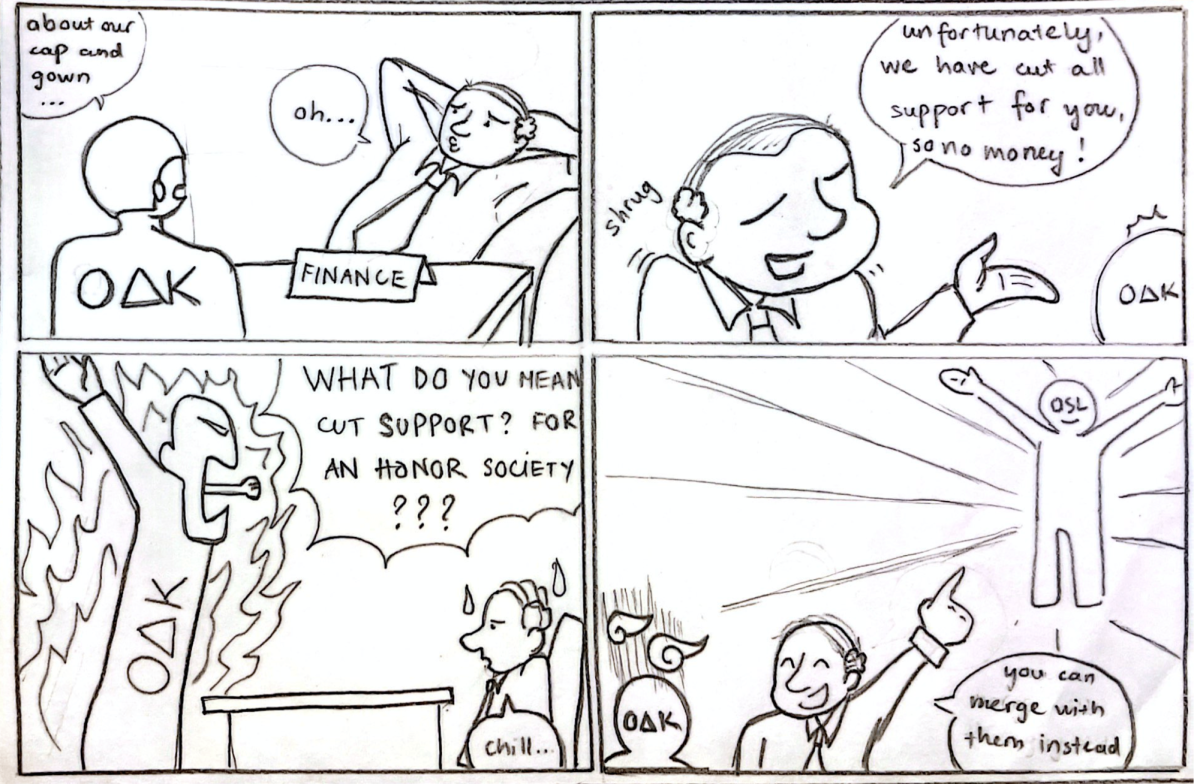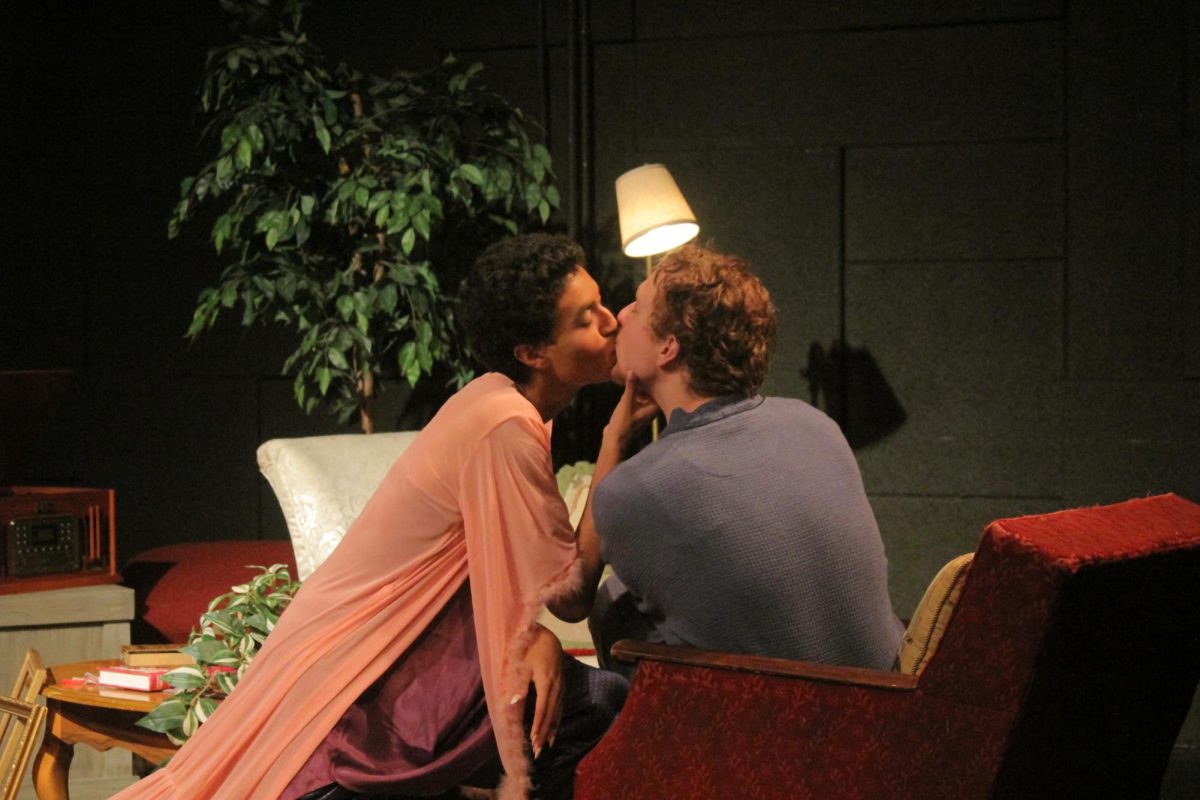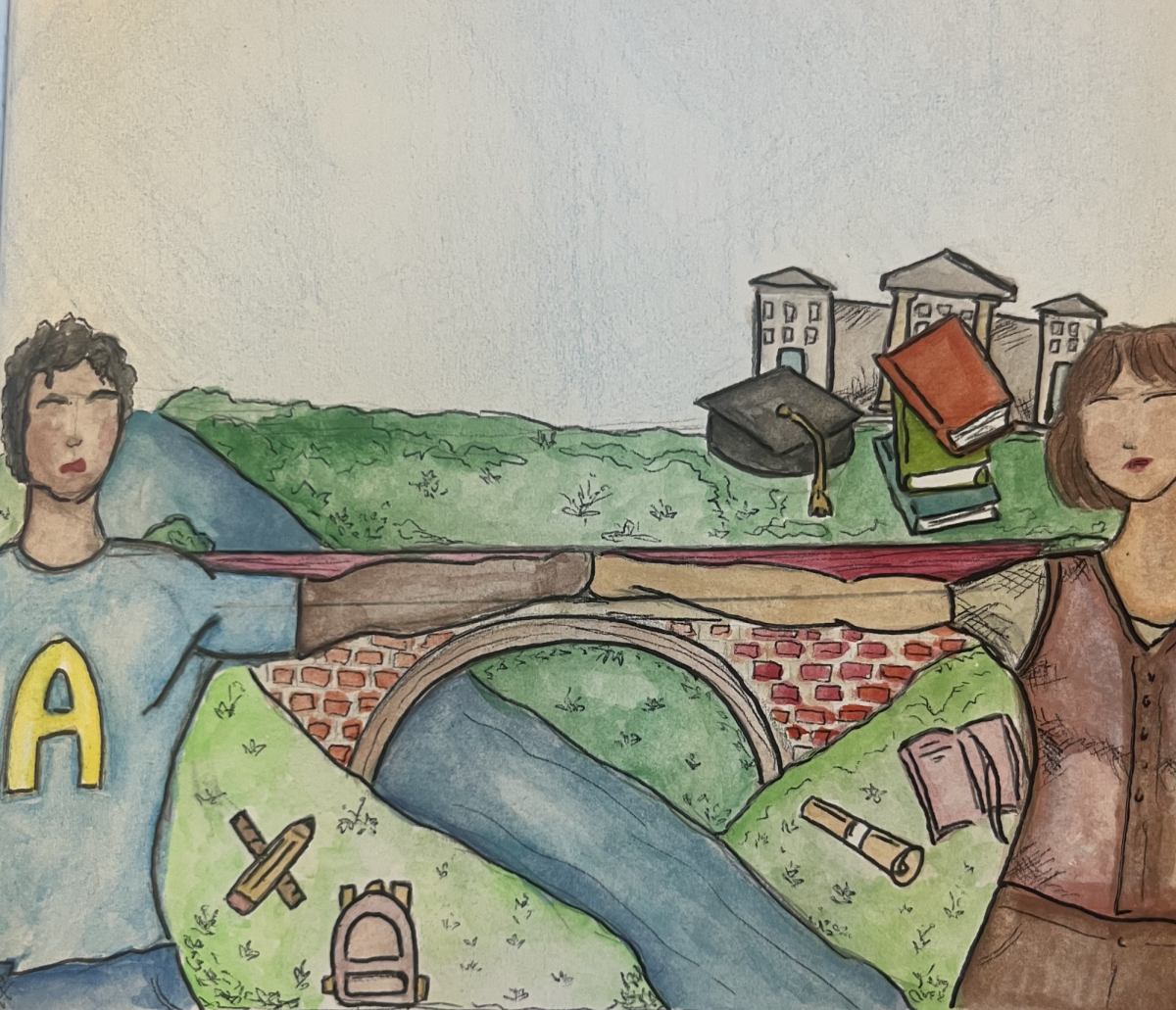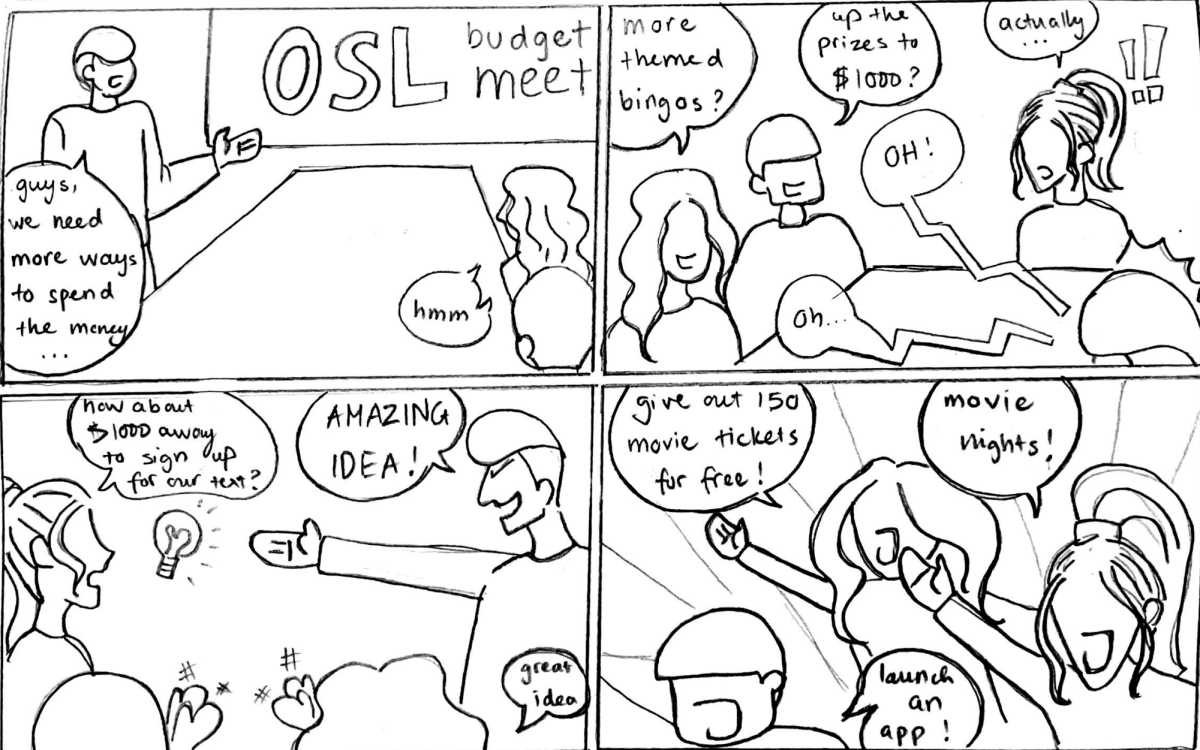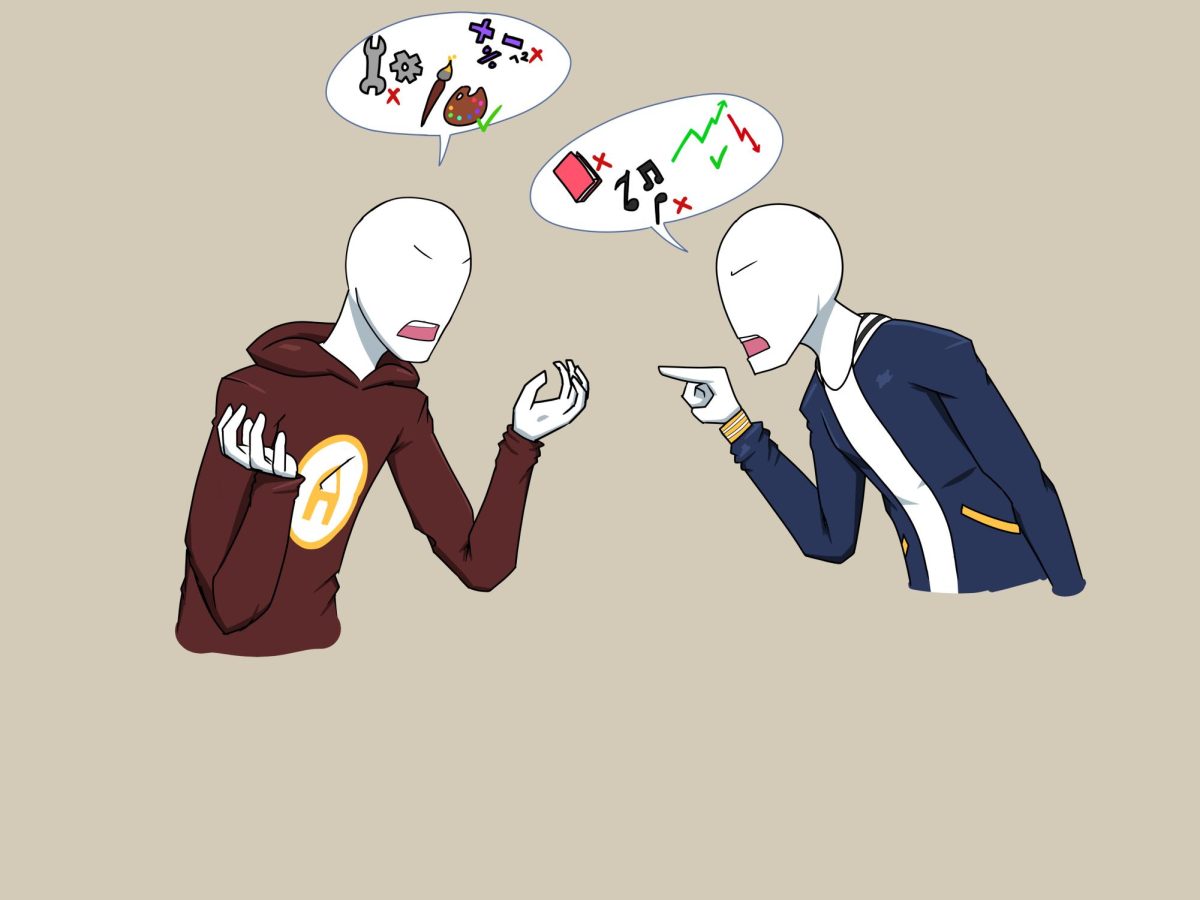It’s a return to the roots of hip-hop, in a time when it’s needed the most.
Kendrick Lamar’s album, “To Pimp a Butterfly,” released March 23, was the most streamed album on Spotify, and is now receiving rave reviews. The album has been justifiably hard to categorize for some, as it sounds like nothing quite before it.
The 79 minute follow-up to Lamar’s 2012 release, “good kid, m.A.A.d city,” is the sound of 2015. It’s obviously hip-hop, with jazzy interludes and nods to soul and funk, but the perspective is fresh. The feeling Lamar brings parallels the feeling of the current culture.
“To Pimp a Butterfly” brought back the richness of classic hip-hop like nothing has before, and hopefully it’s at a time where people are willing to hear it.
In the 1990s, a time widely considered the glory years of rap, everything was east versus west coast. For a short while, both Tupac, in New York, and Biggie Smalls, in Los Angeles, were in the forefront of the new movement towards a modern, urbanized hip-hop.
A mixture of rock and roll, jazz and blues, with the electronic technology available, meant hip-hop had never sounded this way before.
Several rappers and groups emerged during the time, bringing a new sound and feel to the era. Still well-known rappers, such as Dr. Dre and Snoop Dogg (featured on Lamar’s new album), also gained popularity at the time, collaborating with Tupac and others.
At the time, rap was often connected to gang membership and violence, which is something that makes hip-hop easy to ignore or dislike, for those unable to relate to life in the urban areas mentioned. But hip-hop artists like Tupac, who shared his experience of life at the time through poetry and lyrics, proved there’s something everyone needs to hear.
Tupac was to the 1990s what Allen Ginsberg was the 1950s. His often offensive, blatant and realistic writing gave a voice to people who had been socially placed in a subculture, much like Ginsberg did during the Beat Movement. Music created by Tupac and several other artists gave a voice to African Americans who recognized racial, social, economic and political equality has still not been achieved.
The ideas were not necessarily new, but they had never been expressed in quite the same way before. And, the ideas are constantly tackled by musicians in every genre today, including modern hip-hop, rap and R&B artists. However, the genre has moved away from some of the classic ideas behind hip-hop, with a more electronic sound and a sometimes exclusive emphasis on wealth and partying.
The current climate of hip-hop is perhaps what makes the Compton-born Lamar’s album so outstanding. It’s a step back towards classic hip-hop, but also a step away from contemporary hip-hop structure, with a form seemingly lacking structure. In both beats and lyrics, Lamar travels quickly through space and time.
Lamar’s use of time is something hardly ever seen today. The album is long, but every second feels intentional. Lamar utilizes silent space unlike most music today, with space for notes and lyrics to resonate. His use of silence is just one innovative tool Lamar uses, though, the album is filled with powerful interludes, extended metaphors and painfully honest lyrics.
Lamar discusses everything from human potential, to life in Compton, to the damage American history has done. His voice tackles problems America has faced for decades, and most importantly urges Americans to rise above racism.
Race is mentioned throughout the entire album, but some of the most powerful lyrics are in “Blacker the Berry,” where Lamar utilizes stereotypes and metaphor to demonstrate the harshness and reality of racism. Lamar raps, “You hate my people, your plan is to terminate my culture…I’m guardin’ my feelings, I know that you feel it. You sabotage my community, making a killing. You made me a killer.” Lamar’s relevant and brave reaction to the imbalance of power in America is startling at times, especially with the anger in his voice accompanied by distinct drums.
His message isn’t necessarily new, but it does have new relevance in mainstream culture, making it potentially the right album at the right time to ignite actual change. During several live performances, including some on talk shows, Black Americans have stood up, saying a similar message to Lamar’s, wearing “Black Lives Matter” t-shirts alluding to the mass amount of police killings and violent acts towards African Americans.
While the message has always been a staple of hip-hop, Lamar brings a new unforgiving quality to it that needs to be heard. Lamar also tackles some individual struggles, such as depression and faith in God. In the song, “i,” well-known R&B artist Bilal sings the line, “shit don’t change until you get up and wash your ass.” The line is simple and catchy, but emphasizes the importance of fighting oppressive forces and bettering the self.
Perhaps most unexpected on the album, though, was the end. The last song, “Mortal Man,” features an interview between Lamar and Tupac, with audio taken from a 1994 interview. Tupac’s answers about fame and dealing with adversity are thoughtful and dramatic, making it an appropriate ending to the landmark album.
Lamar may not be the next Tupac, but he is the voice the current generation needs. The 27 year old rapper’s ability to capture the attitude and struggle of life during this time has been unmatched so far. His message of racial equality and individual betterment in “To Pimp a Butterfly” should be heard by everyone, regardless of race, gender or status.
Review: Lamar's new album is 'Straight Outta Compton'
March 25, 2015

